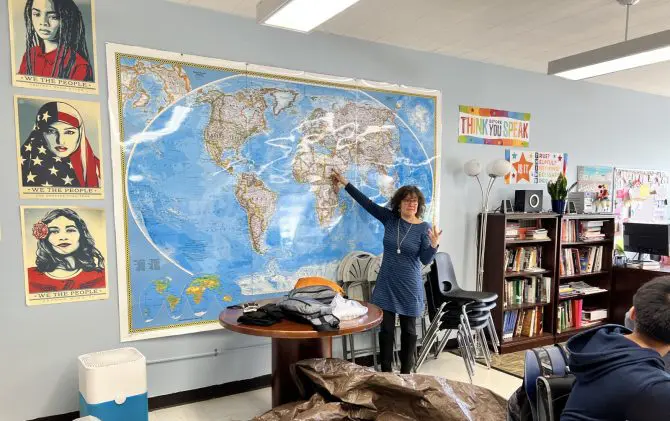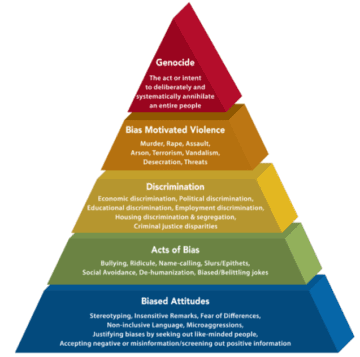Program Update: Social Studies

6th Grade:
Before spring break students turned in a formal paragraph about Ötzi the Iceman, which concluded our unit on the Neolithic Agricultural Revolution. After break I led the class through an exploration of the concepts of belonging, fitting in, and identity. Using the prompt “I am _____ ,” students thought about what identifiers they use to describe themselves, how it feels when one does/does not belong to a group, and what a person’s name says about who they are. These topics led to some robust discussions where students were able to ask heartfelt and important questions, including some that centered on racial identity, which I used to guide the class conversation. Embedded in these discussions were a variety of mini-history lessons including how the legacy of American enslavement affects us today; how social power works through American culture and society; and what constitutes the American “standard of beauty” as shown in popular media. From there, we pivoted to economics where we began a unit focused on the relationship among supply, demand, and price, leading up to the topic of inflation. To demonstrate inflation I conducted a “gold auction” where snacks were auctioned to the highest bidder, and also had the kids explore the extreme “eggflation” that happened in 2023. Just for fun, consider asking your students about Mansa Musa and how his hajj to Mecca caused a destabilization of the Egyptian economy. (Spoiler alert: Mansa Musa is considered to be the richest person who ever lived!)
7th Grade:
Students in seventh grade recently completed a unit taught by Tim’s substitute teacher, Nissa, on politics and public policy. They are taking a test on this unit today and will move into answering big questions in the form of a paragraph or mini-essay on the advantages and disadvantages of either a two-party system (like we have in the United States) or a multi-party system (as found in other countries, especially in Europe). For Challenge, students can focus on both systems, analyzing the advantages and disadvantages.
Prior to this unit, students chose a landmark Supreme Court case for an extended research mini-essay. The following cases were chosen by seventh graders:
- US v. Wong Kim Ark
- United States v. Virginia
- Brown v. Board of Education
- Texas v. Johnson
- Citizens United v. Federal Election Commission
- In Re Gault
- Obergefell v. Hodges
- Miranda v. Arizona
- Loving v. Virginia
- Safford v. Redding
- Bethel v. Fraser
- PGA Tour, Inc. v. Martin
- Lau v. Nichols
- Gideon v. Wainwright
- Elk v. Wilkens
- Dobbs v. Jackson Women’s Health Organization
8th Grade:
Eighth grade students finished a unit on the Holocaust, culminating in research essays on why it is important to interrupt what is called “lower-level hate” before it rises to more severe forms of hate. Students learned about the Pyramid of Hate (see below). We all know that the Holocaust was genocide, which is the most extreme form of hate, but students learned about earlier lower-level hate that targeted Jewish people in Nazi Germany and elsewhere. These slurs, name-calling, discrimination, and segregation went uninterrupted, and the hate rose on the Pyramid of Hate all the way to genocide. While modern examples of hate might not result in genocide, students learned it is critical to interrupt hate at early stages in order to prevent hate from rising up in severity on the Pyramid of Hate.

After this unit, students moved into an international affairs unit taught by Tim’s substitute, Nissa. Students will soon be venturing into a new Change the World Project focusing on specific needs in Seattle and King County.
